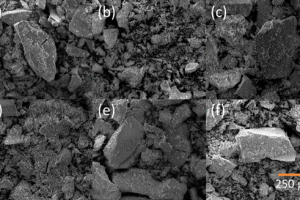
BY DANIEL ALEMAYEHU
It is believed that Ethiopia has not used its untapped potentials to the fullest in the past many years. A number of actions were taken especially to upgrade nation’s ways of utilizing both its natural resources and man power capacity to achieve its long waited prosperity.
It is the fact that the country is still using most of very old and ancient system even in this highly modernized world. The best example might be our agricultural methods that are outdated as old as the time. With those ways of utilizing resources, it is obvious that the nation will not be able to step forward.
In order to curb the challenges seen in different sectors, the incumbent coupled with responsible bodies should find a way out to such challenges and try to find a better way to use nation’s untapped potentials. As more than 80 percent of the people are farmers, those responsible bodies must find a strategy that can incorporate the vast majority of the nation and make them effective.
From those natural resources that the nation is blessed with, the government could have a chance to achieve more in agriculture, to be specific horticulture sector. Besides, in the past few years, the nation has been registering promising accomplishments in the horticulture sector. The nation is now scoring better in different sections of agriculture.
In previous reports, the Ministry of Agriculture announced that the country has been registering better in exporting horticulture products to the international markets. It was stated that the nation secured over 400 million USD from horticulture exports within the first seven months of the current fiscal year. It was also reported that cut flowers export has taken the lead in horticulture sector.
According to Mekonnen Solomon, Horticulture Export Account Coordinator at the Ministry of Agriculture, the above mentioned figure was collected from exported flowers, fruits and vegetables to the international markets.
In addition, the nation has gained over 348 million USD from flower export and over 65 million USD from fruit and vegetables exports. Evaluating the performance of the exportable items, the revenue and export volume of flower exceeded 19.62 and 7.55 percent respectively comparing with the same year last year, Mekonnen noted.
Mekonnen also mentioned that, though the registered figure showed that fruit and vegetable exports have been increasing from time to time; however, the volume of the production is still not satisfactory compared with the country’s massive potential and the interest shown by international customers.
It is important to remember that the agriculture sector contributes over 77.12 percent of nation’s total export volume. To this end, Mekonnen disclosed that tangible improvements have been seen in the current fiscal year regarding agriculture. Product’s such as coffee, flower and cereals are playing the leading role in such success.
Be that at it may, similar with flower export, Ethiopia is showing promising achievements in avocado export. Having a stay with The Ethiopian Herald, Atilaw Anbelu, Head of Fruit Development Desk at the Ministry of Agriculture, stated that Ethiopia secured over 1.6 million USD from exporting avocados in the past seven months of the current fiscal year. Accordingly, the nation has exported over 1500 tons of avocado fruits to markets found in European and Middle East countries.
The head further described that in the current climate, the country has covered over 160 thousands of hectares of land by fruit productions. From the land covered by fruit products, the country has been developing over 30 thousand hectares of land for avocado production.
Atilaw noted, “Such a promising move has created the proper linkage with private investors through contract farming and out-growers scheme with a view to enhancing the development of the sector.”
According to authentic data, in the past five years, Ethiopia’s avocado production has shown a continuous increase at an average of 42.7 percent. Talking about the nation’s promising opportunities regarding fruit production, Atilaw highlighted that the congenial climatic and edaphic production conditions in Ethiopia have helped the country to be placed on a better platform to cultivate the product. “The country has more than four million hectares of land that could be used for the production of irrigated fruit and vegetables, one is avocado, indeed!” the head said.
In order to achieve the aforementioned success, the head stressed that the Ministry has given due attention to cluster-based plantations and supportive Government Green Legacy Initiative so as to create rooms for diversification of avocado plantation and other factors attributed to expand opportunities to enhance the production and productivity of avocado.
It was learnt that the nation has untapped potential to avocado fruit; nevertheless, it is said that the country has not been gaining the expected amount of income from the product. Some of the reason for that could be lack of post-harvest handling technologies and facilities, low quality of seedlings and the like. On top of that poor access to formal credit for avocado growers, lack of specialized extension services on avocado, scattered and an unorganized supply chain, lack of common packing and grading facilities, limited availability of foreign currency, underdeveloped market infrastructure are hindering factors that pulled the nation back from achieving better.
Citing the support delivered for producers of the fruit in order to enhance their production and productivity, the head disclosed that the government has been supporting smallholder avocado growers with extension and technical support, advisory and training service free of charge along with the value chain. The Ministry of Agriculture has also taken its responsibility and organized smallholder farmers and coordinating their product to access direct market to wholesaler on local market.
Regarding the attempt to create the necessary link between the smallholder farmers’ avocado products to international markets, the head pinpointed that the current incumbent has been facilitating favorable conditions to farmers so as to get the required fund for seedling duplication programs free of charge. Moreover, the Ministry of Agriculture has been taking actions in fruit nursery establishment and supporting cluster plantation of avocado. Organizing and strengthening farmers’ cooperatives and unions and distributing grafted avocado seedlings are also the actions taken by the Ministry.
Discussing on the future directions in relation to avocado production and productivity, Atilaw stated that the current incumbent has unwavering commitment to increase utilization of agricultural- mechanization in relation to avocado production and value chain processing. “The government has also encouraged and supported the private sector investment in avocado sector through research and specialized agricultural extension,” Atilaw said.
The Ethiopian Herald March 14/2023





